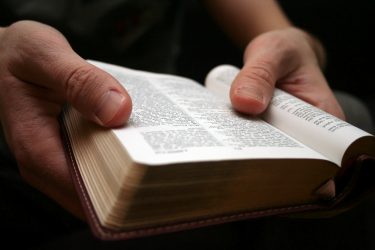Do people become parents just so they have someone to take care of them in their old age? When I asked my 92-year-old mother if that was the case, she agreed (she has dementia, but also an intact sense of wry humor). I do handle all of her finances and visit her three times a week at the Assisted Living Facility into which I moved her. She is completely dependent upon other people for her care. However, that was not why God blessed her with children.
Let’s look at the scriptures. Gen. 1:28 tells us that God specifically directed Adam and Eve to have children to fill the earth. They complied and started filling the earth. But then something happened—some of the angels were attracted to human women and came to earth to mate with them. This was not part of God’s plan. He told Noah to build an ark, gather in two of every kind of animal, plus some additional ones for sacrifice, and take his family aboard. Then he sent the flood to wipe out all the rest of the people who had been corrupted by the evil angels. In Gen. 9:1, God again said to multiply and fill the earth—this time to Noah and his sons.
God does want children to love, respect, and care for their parents. He tells us in the fifth commandment (Gen 20:12) to “Honor your father and your mother, that your days may be prolonged in the land which the Lord your God gives you”. This commandment must have been pretty important because it is restated in Lev. 19:3, Deut. 5:16, and again by Jesus in Matt. 15:4, 19:19, and by Apostle Paul in Eph. 6:2. Honoring is showing reverence, profound respect, love, and devotion. If we are honoring our parents, how can we not take care of them when they are older? Wouldn’t you want your child to do likewise? If children are trained to love and respect their parents, this should come naturally. Prov. 22:6 says, “Train up a child in the way he should go, even when he is old he will not depart from it.”
With the passing of centuries from Adam, and with society not being as devoted to God as before, we can see that religious devotion has given way to devotion to other things. In an agricultural society, people had lots of children to help out on the farms. People also had lots of children because they didn’t expect all of them to live to adulthood. People have children for various reasons. Chief among them is that they want to be parents and have the experience of raising a family in a loving environment.
Many cultures have very closely knit families. There may be several generations living together in one dwelling. Each of these people loves and respects the others in the family unit. By living together, young are taught about life and about the experiences of their elders. The grandparents may provide babysitting services while the parents work. The young can assist the elderly in their chores, reaching items, etc., and provide excitement and energy to their elders. They all take care of one another. While much of the United States population is made up of typical family units (father, mother, and children dwelling together), there are also many families of other cultures that are keeping to their traditions. The degree to which children take responsibility for caring for aged parents varies depending on one’s cultural traditions, the availability of other resources/places for caring for the aged, and the financial means of the family to pay for care for their parents.













